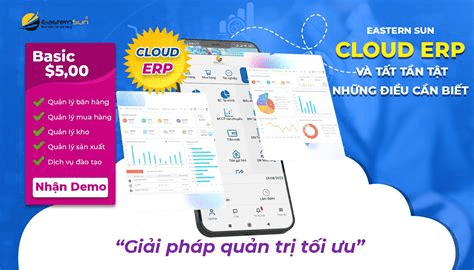Erp sun
Welcome, curious reader! If you’ve ever wondered how to optimize your business operations and streamline your processes, look no further than ERP Sun. This powerful ERP solution has the ability to transform the way you do business, bringing efficiency and productivity to new heights. Join us on a journey to unlock the full potential of ERP solutions with ERP Sun and discover the many benefits it can bring to your organization.
Overview of ERP Sun software
ERP Sun is a comprehensive enterprise resource planning software that is designed to streamline and integrate the various processes and functions within an organization. This software provides a centralized platform for managing all aspects of a company’s operations, including finance, HR, inventory, sales, and more. With ERP Sun, companies can improve efficiency, increase productivity, and make better-informed decisions.
One of the key features of ERP Sun is its modular design, which allows companies to customize the software to meet their specific needs and requirements. This means that organizations can choose the modules that are most relevant to their business and only pay for the features they will actually use. This flexibility makes ERP Sun a cost-effective solution for businesses of all sizes.
In addition to its modular design, ERP Sun also offers a user-friendly interface that is easy to navigate and understand. This makes it simple for employees at all levels of the organization to access and use the software, leading to increased adoption and higher return on investment. The intuitive nature of ERP Sun also reduces the need for extensive training, saving companies time and money.
Another standout feature of ERP Sun is its real-time data analytics capabilities. With this software, companies can generate detailed reports and analysis on various aspects of their business, helping them to identify trends, spot opportunities for growth, and make informed decisions. This access to real-time data is crucial in today’s fast-paced business environment, where staying ahead of the competition is more important than ever.
Furthermore, ERP Sun is a cloud-based solution, which means that companies can access the software from anywhere with an internet connection. This flexibility allows employees to work remotely, collaborate seamlessly, and stay productive even when they are not in the office. Cloud-based ERP also ensures that companies always have access to the latest updates and features, without the need for complicated and time-consuming installations.
Overall, ERP Sun is a powerful and versatile software solution that can help companies of all sizes improve their operations, increase their efficiency, and drive growth. With its modular design, user-friendly interface, real-time data analytics, and cloud-based capabilities, ERP Sun is a smart investment for any organization looking to streamline their processes and stay competitive in today’s dynamic business landscape.
Key features and functionalities of ERP Sun
ERP Sun is a comprehensive enterprise resource planning software that offers a wide range of features and functionalities to help businesses streamline their operations and improve efficiency. Some of the key features of ERP Sun include:
1. Financial Management: ERP Sun provides robust financial management capabilities, allowing businesses to manage their accounts payable, accounts receivable, general ledger, and financial reporting. With ERP Sun, businesses can easily track their finances, generate accurate reports, and ensure compliance with financial regulations.
2. Inventory Management: One of the standout features of ERP Sun is its advanced inventory management functionality. Businesses can efficiently track their inventory levels, manage stock movements, and optimize their inventory control processes. This helps businesses reduce carrying costs, prevent stockouts, and improve overall inventory accuracy.
Additionally, ERP Sun offers multi-location support, allowing businesses with multiple warehouses or facilities to manage and track their inventory across different locations. This feature is particularly beneficial for businesses with complex supply chains or distribution networks.
Furthermore, ERP Sun’s inventory management module integrates seamlessly with other modules such as sales, purchasing, and manufacturing, enabling real-time visibility into inventory levels and ensuring that inventory data is always up-to-date. This integration helps businesses make informed decisions, improve order fulfillment accuracy, and enhance customer satisfaction.
3. Sales and CRM: ERP Sun includes a comprehensive sales and customer relationship management (CRM) module that helps businesses streamline their sales processes, manage customer relationships, and drive revenue growth. This module enables businesses to track leads, opportunities, and sales orders, as well as monitor customer interactions and communications.
With ERP Sun’s CRM functionality, businesses can create personalized marketing campaigns, track customer preferences, and provide exceptional customer service. This leads to improved customer satisfaction, increased sales conversion rates, and enhanced customer loyalty.
4. Production Planning and Manufacturing: ERP Sun offers robust production planning and manufacturing capabilities, allowing businesses to plan, schedule, and execute their production processes efficiently. Businesses can create production orders, track work-in-progress, and monitor manufacturing costs in real-time.
Furthermore, ERP Sun’s manufacturing module supports different production methods such as make-to-stock, make-to-order, and engineer-to-order, enabling businesses to tailor their production processes to meet specific customer demands. This flexibility helps businesses improve production efficiency, reduce lead times, and deliver high-quality products to customers.
Overall, ERP Sun is a powerful ERP solution that offers a wide range of features and functionalities to help businesses improve their operational efficiency, drive growth, and achieve their business objectives. From financial management and inventory control to sales and CRM, ERP Sun provides businesses with the tools they need to succeed in today’s competitive marketplace.
Implementation process of ERP Sun in businesses
Implementing ERP Sun in a business can be a complex process that requires careful planning and attention to detail. The process typically involves several key steps that need to be followed in order to ensure a successful implementation.
1. Planning and preparation: The first step in implementing ERP Sun in a business is to carefully plan and prepare for the implementation process. This involves conducting a thorough analysis of the company’s current systems and processes, identifying the goals and objectives of the implementation, and developing a detailed project plan that outlines the steps that need to be taken to successfully implement the ERP system. It is important to involve key stakeholders in the planning process to ensure their buy-in and support throughout the implementation.
2. Data migration and integration: Once the planning and preparation phase is complete, the next step in the implementation process is to migrate existing data into the ERP system and integrate it with other systems and applications that the business uses. This can be a complex process that requires careful coordination and testing to ensure that the data is transferred accurately and that it is accessible and usable within the ERP system.
3. Customization and configuration: One of the key benefits of ERP Sun is its ability to be customized and configured to meet the specific needs of a business. This step in the implementation process involves working with the ERP vendor to customize the system to fit the unique requirements of the business, such as adding custom fields, workflows, and reports. It also involves configuring the system to align with the company’s existing processes and workflows, ensuring that the ERP system integrates seamlessly with other systems and applications that the business uses.
4. Training and support: Once the ERP system has been customized and configured, the next step in the implementation process is to provide training and support to end users. This involves developing and delivering training programs that help users understand how to use the ERP system effectively and efficiently. It also involves providing ongoing support to ensure that users can access the help they need when they encounter problems or have questions about the system.
5. Testing and optimization: The final step in the implementation process is to test the ERP system and optimize its performance. This involves conducting thorough testing to identify and resolve any issues or bugs in the system, as well as optimizing the system to ensure that it is running smoothly and efficiently. It is important to continue monitoring the system after implementation to make any necessary adjustments and improvements to ensure that it continues to meet the needs of the business.
Overall, the implementation process of ERP Sun in businesses is a complex but rewarding process that can help streamline operations, improve efficiency, and drive growth. By following these key steps and working closely with ERP vendors and key stakeholders, businesses can successfully implement ERP Sun and reap the benefits of a modern, integrated system.
Benefits of choosing ERP Sun for enterprise resource planning
ERP Sun is a powerful tool that can revolutionize the way your company manages its resources. With its user-friendly interface and comprehensive features, ERP Sun offers numerous benefits for organizations looking to streamline their operations and improve efficiency.
1. Improved efficiency: One of the primary benefits of using ERP Sun for enterprise resource planning is the significant improvement in efficiency. By centralizing all your data and processes in one system, you can eliminate duplicate efforts and reduce the risk of errors. This streamlined approach allows your team to work more efficiently and focus on more strategic tasks.
2. Better decision-making: Another advantage of ERP Sun is its ability to provide real-time insights and data analytics. With accurate and up-to-date information at your fingertips, you can make better decisions and quickly adapt to changing market conditions. This data-driven approach allows you to stay ahead of the competition and drive business growth.
3. Cost savings: Implementing ERP Sun can lead to cost savings for your organization. By streamlining processes and reducing manual tasks, you can lower operational costs and increase productivity. Additionally, ERP Sun can help you identify areas for improvement and optimize resource allocation, leading to further savings in the long run.
4. Enhanced customer satisfaction: One significant benefit of choosing ERP Sun for enterprise resource planning is the positive impact it can have on customer satisfaction. By streamlining processes and improving efficiency, you can provide better service to your customers and respond more quickly to their needs. This increased responsiveness can help you build stronger relationships with your customers and enhance their overall experience with your company.
5. Scalability: As your business grows, ERP Sun can easily scale to meet your changing needs. Whether you are expanding into new markets or adding new products and services, ERP Sun can adapt to your evolving business requirements. This scalability ensures that your organization can continue to operate efficiently and effectively as it grows.
In conclusion, choosing ERP Sun for enterprise resource planning can bring numerous benefits to your organization, including improved efficiency, better decision-making, cost savings, enhanced customer satisfaction, and scalability. By leveraging the power of ERP Sun, you can streamline your operations, drive growth, and stay ahead of the competition in today’s fast-paced business environment.
Case studies of successful ERP Sun implementations
ERP Sun has been implemented successfully by various companies, leading to significant improvements in their operations and overall efficiency. Here are five case studies showcasing how companies have benefited from ERP Sun:
1. Company A, a multinational corporation in the manufacturing industry, implemented ERP Sun to streamline their processes and improve communication between departments. With the help of ERP Sun, they were able to track their inventory more effectively, leading to a 20% decrease in stockouts and a 15% increase in on-time delivery performance. This resulted in increased customer satisfaction and a higher level of operational efficiency.
2. Company B, a retail chain with multiple branches across the country, chose to implement ERP Sun to centralize their data management and improve financial reporting. By consolidating their data into one system, they were able to generate accurate reports in real-time, leading to better decision-making and financial forecasting. This helped Company B reduce their operating costs by 10% and increase their profit margins by 5% within the first year of ERP Sun implementation.
3. Company C, a service-based organization, decided to implement ERP Sun to automate their manual processes and improve project management. With ERP Sun, they were able to streamline their workflows, allocate resources more effectively, and track project progress in real-time. As a result, Company C saw a 30% increase in project completion rates and a 25% decrease in project delays, leading to improved profitability and customer satisfaction.
4. Company D, a healthcare provider, integrated ERP Sun to enhance their patient care and billing processes. By implementing ERP Sun, they were able to improve patient data management, streamline billing procedures, and reduce billing errors. This resulted in a 20% increase in revenue collection and a 15% decrease in billing disputes, ultimately leading to improved financial performance and patient satisfaction.
5. Company E, a technology startup, successfully implemented ERP Sun to support their rapid growth and scale their operations efficiently. With ERP Sun, they were able to automate their order processing, enhance supply chain management, and improve inventory control. As a result, Company E experienced a 40% increase in sales revenue and a 25% decrease in order processing time, enabling them to expand their market presence and achieve sustainable growth.







